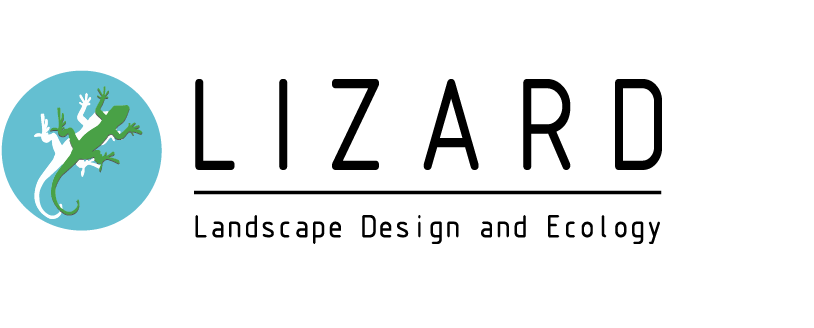Ecological assessments are an essential part of the planning process, where it is important to protect wildlife populations and biodiversity at every stage of a development project.
Before building work or renovations can begin, ecological consultants must assess the area to ascertain which species have made their home on the site. Protective measures and mitigation plans can then be put into place to ensure the longevity of these habitats.
In addition to protecting local species, ecological services are also essential for ensuring that planning applications are successful. It is important to show that your project has considered the needs of the local area, and that your development won’t cause unnecessary harm.
Read on to find out more about the role of an ecological survey consultant, with a look at their importance and the long term benefits for development projects.
What is an Ecological Survey Consultant?
An ecological survey consultant is a qualified professional who assesses the ecological value of a site, typically in relation to development or land management projects. They play a crucial role in ensuring that projects comply with environmental legislation and minimise their impact on the local ecosystems.
Typically, their work involves conducting detailed surveys of flora and fauna, identifying habitats and assessing their significance. This might include surveying for protected species, such as bats, newts, or badgers, as well as mapping vegetation types and evaluating the biodiversity of the area.
Ecological consultants provide expert advice on how to mitigate potential ecological impacts, often recommending measures to protect or enhance existing habitats. They prepare detailed reports outlining their findings and recommendations, which are used to inform planning applications and environmental impact assessments.
Ultimately, an ecological survey consultant acts as a bridge between development and conservation, helping to balance the needs of both while ensuring the protection of our natural environment. They use their expertise to ensure projects proceed in a way that minimises harm and, where possible, enhances biodiversity.
The Importance of Ecological Surveys for Development Projects
Development projects, whether for housing, infrastructure, or commercial purposes, can have significant impacts on the natural environment. Ecological surveys are crucial for understanding and mitigating these impacts, ensuring that development can proceed sustainably and responsibly.
Some of the ways that development teams benefit from ecological assessments are discussed below:
Legal Compliance & Planning Permission
In the UK, numerous laws protect wildlife and habitats. Ecological surveys are often a legal requirement for planning applications, particularly when protected species or habitats are present. A thorough survey demonstrates due diligence and helps secure planning permission by providing evidence that potential ecological impacts have been considered and mitigated.
Minimising Environmental Impact
Ecological surveys identify the presence of protected species and valuable habitats, allowing developers to adjust their plans to avoid or minimise harm. This might involve altering site layouts, creating buffer zones, or implementing mitigation measures such as habitat creation or translocation of species.
Enhancing Biodiversity
Beyond minimising harm, ecological surveys can also identify opportunities to enhance biodiversity. This might involve creating new habitats, planting native species, or improving connectivity between existing habitats. By incorporating ecological enhancements into development projects, developers can contribute to local biodiversity and create more sustainable environments.
Cost Effectiveness & Avoiding Delays
Conducting ecological surveys early in the planning process can save time and money in the long run. Identifying potential ecological constraints upfront allows developers to incorporate mitigation measures into their designs, avoiding costly redesigns or delays during construction.
Demonstrating Corporate Social Responsibility
Increasingly, companies are expected to demonstrate their commitment to environmental sustainability. Conducting ecological surveys and implementing mitigation measures shows a proactive approach to environmental protection, enhancing a company's reputation and demonstrating corporate social responsibility.
Long Term Benefits of Ecological Assessments
Ecological assessments can provide lasting benefits beyond meeting immediate planning requirements. For instance, you will be able to:
Futureproof your development - Assessments minimise environmental harm, ensuring projects support long-term ecological balance. This creates resilient ecosystems for future generations.
Strengthen your ecosystem - Identifying habitat and species protection opportunities leads to increased local biodiversity. This strengthens ecosystem health and resilience.
Reduced future costs - Proactive ecological management prevents costly environmental remediation. Avoiding damage reduces legal challenges and clean-up expenses.
Improve your public image - Demonstrating ecological responsibility through assessments builds trust with communities and stakeholders, fostering positive long-term relationships.
Ensure long-term compliance - Ongoing monitoring and assessments ensure continuous compliance with environmental laws, minimising future penalties and ensuring operational stability.
Lizard Landscape Design: Ecological Assessments for Your Project
At Lizard Landscape Design, our specialist ecological consultants are on-hand to complete accurate surveys that will support your development project both at the planning stage and beyond.
Our survey consultants can perform:
Extended Phase 1 Habitat Surveys - for developments.
Ecology Phase 1 Habitat Surveys - for flora, fauna and protected species.
Phase 2 Habitat Surveys - including bat surveys and assessments for reptiles, amphibians, badgers, dormice and invertebrates.
With the help of our ecological surveys, you can minimise the impact your project will have on the environment. This is an essential part of the planning process, where addressing your ecological impact will help to ensure that your planning application is successful.
Additionally, our expert team can also deliver:
Preliminary Ecological Appraisals - The first stage of a site ecological assessment, where this includes an ecological desk study, an extended ecology Phase 1 habitat survey, and a detailed protected species assessment.
Protected Species Surveys - These surveys are a legal requirement if initial assessments suggest that a protected species is present on the development site, where population sizes and mitigation measures will be established.
Get in touch with our specialist team today to find out more about our ecological services.


